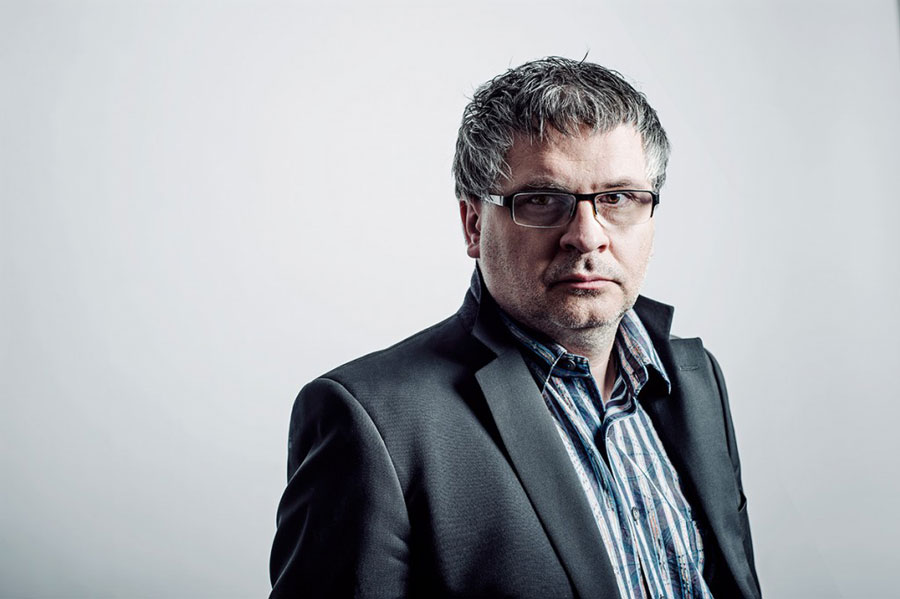Andrzej Bauer graduated from the Academy of Music of Łódź under the direction of Kazimierz Michalik and also completed a two-year course under William Pleeth, in London, funded by a scholarship from Witold Lutosławski. In 1992 Bauer won the ARD International Competition in Munich. He was a prize-winner at the Prague Spring Competition in 1989 and also received the Europaischer Forderpreis award, in 1991. His premiere recording, which includes works by Schubert, Brahms and Schumann, was awarded the quarterly German Critics Prize, Preis der Deutschen Schallplattenkritik. Bauer has recorded with numerous radio orchestras and has performed throughout Europe as well as in the United States and Japan. His album of the complete Cello Suites by J. S. Bach was released in 2000 on CD ACCORD. Bauer’s repertoire includes the jewels of composition for cello as well as contemporary pieces, several of which have been composed with him in mind.
Of the six sons of Johann Sebastian Bach, four became successful musicians, Wilhelm Friedemann (1710–84), Carl Philipp Emanuel (1714–88), Johann Christoph Friedrich (1732–95), and Johann Christian (1735–82). C.P.E Bach was initially employed by the Prussian court of Frederick the Great in Berlin but later worked in Hamburg, where had he replaced Telemann as Cantor and Music Director for the city in 1768.
The Cello Concerto in A major is one of three cello concertos written in the 1750s, which are fundamental to the repertoire. They have long been considered transcriptions of works originally composed for harpsichord and strings, and they were later rescored as flute concertos. The Cello Concerto in A major is nearly identical to the flute concerto in the same key. The beginning nearly quotes Bach’s’ father’s F minor Invention for harpsichord, but then wanders into its own unique territory. The slow movement is particularly dark and imposing with the minor-key lament continuing at some length introduced by a sighing, melancholy theme in the orchestra.
Ouroboros for Cello and Orchestra, composed in 2015, is a work in three movements, the second of which is an extended cadenza for the solo cello and piano. The piece is named for the Greek symbol, the Ouroboros, which Thomas Larcher came across while reading about the Brahms symphonies. Its rhythmically complex textures require the orchestra to listen and play as a much smaller ensemble and thus it can be performed with or without a conductor. The solo cello functions uniquely as an initiator of processes more than a virtuosic voice throughout the piece.
Thomas Larcher was quoted by Schott music, “I love to write for individual players and singers. I love working with people who are going to play my music. Knowing what kind of music they like and what they can do has never been something that gives me boundaries – on the contrary, it is something that forces me to stretch myself and give each artist a piece which fills out their possibilities. This is also in an emotional sense – how they see the world.”
Arvo Pärt was born in Paide, Estonia, in 1953. He studied at the Tallinn Conservatory and later worked as a sound engineer at Estonia Radio while composing music for film and theatre. His early concert music experimented with neo-classicism and avant-garde styles, which in 1962 begot censure from the Soviet Composers Union. Six years later, his work Credo was banned after its premiere for professing the Christian faith. During the 1970s, Pärt developed a new style influenced by early polyphony, which he called “tintinnabuli,” entailing one voice moving in a stepwise manner around a given pitch and another sounding a bell-like triad.
Tabula Rasa was composed in 1977, on a suggestion by violinist Gidon Kremer, to which the piece is dedicated. It is scored for violin, viola, string orchestra and prepared piano. The piece is written in a style absorbed from the late medieval period and Russian Orthodoxy and is presented as spiritual music. The work uniquely provided both a minimalist contradiction to the technological aspects of the economic boom of the 1980s and a healing voice for the violence of 20th century. Pärt is thus dually respected for its stylistic birth under the Soviet regime as well as its aesthetic appeal under the West’s capitalist culture.
Alixandra Porembski, English Language Annotator

